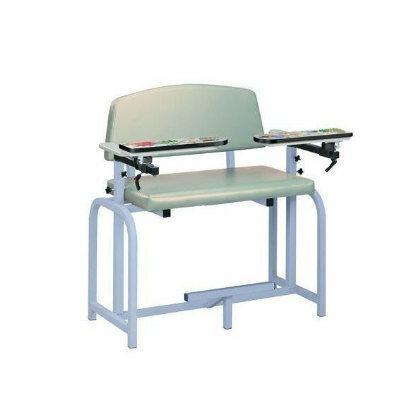Mechanical Heart Valve Replacements Have Better Long-Term Survival, Study Finds
|
By HospiMedica International staff writers Posted on 18 Feb 2025 |

Over the past two decades, there has been a shift towards the use of biological heart valves rather than mechanical ones. While short-term clinical outcomes for both types of valves are generally considered comparable, the long-term outcomes remain a subject of ongoing debate. Current guidelines recommend mechanical valves made from synthetic materials for patients under 50 years old, while biological valves, which are made from animal tissue, are preferred for individuals over the age of 65 or 70. For patients aged between 50 and 70, the decision is typically left to the discretion of both surgeons and patients. New research, however, suggests that patients aged 50 to 70 who receive a mechanical heart valve replacement may experience better long-term survival than those with a biological valve.
The study, led by the University of Bristol (Bristol, UK), aimed to assess the clinical outcomes for patients aged 50 to 70 who underwent elective and urgent heart valve replacement at the Bristol Heart Institute (BHI) over a 27-year period (1996 to 2023). The researchers focused on trends, early outcomes, long-term survival rates, the incidence of repeat valve interventions, and patient prosthesis mismatch (PPM). The study included 1,708 patients, with 61% male and an average age of 63 years, of whom 1,191 (69.7%) received a biological valve replacement.
The findings, published in European Journal of Cardio-Thoracic Surgery, revealed that there were no significant differences in the short-term outcomes between patients receiving biological and mechanical valves. However, patients with mechanical valves had better long-term survival, up to 13 years post-surgery. Notably, patients who received a 19 mm biological valve (a smaller valve often used in females) had the poorest long-term survival. In contrast, patients with a 21 mm mechanical valve experienced better survival outcomes than those with either a 19 mm or 21 mm biological valve. The study also highlighted that severe PPM is a major risk factor for poor long-term survival. The research team advises further evaluation of the long-term benefits of mechanical valves, particularly in smaller sizes, despite the advantage of biological valves in eliminating the need for long-term blood thinners.
“Our study has implications for decision-making in surgical heart valve replacements for patients aged between 50 and 70 years old,” said Gianni Angelini, BHF Professor of Cardiac Surgery at the Bristol Medical School. “The evidence supporting better long-term survival in patients receiving a mechanical heart valve suggests the current trend favoring biological valves in this age bracket should be urgently reconsidered. The survival benefit is especially clear in smaller sized valves.”

Latest Surgical Techniques News
- New Transcatheter Valve Found Safe and Effective for Treating Aortic Regurgitation
- Minimally Invasive Valve Repair Reduces Hospitalizations in Severe Tricuspid Regurgitation Patients
- Tiny Robotic Tools Powered by Magnetic Fields to Enable Minimally Invasive Brain Surgery
- Magnetic Tweezers Make Robotic Surgery Safer and More Precise
- AI-Powered Surgical Planning Tool Improves Pre-Op Planning
- Novel Sensing System Restores Missing Sense of Touch in Minimally Invasive Surgery
- Headset-Based AR Navigation System Improves EVD Placement
- Higher Electrode Density Improves Epilepsy Surgery by Pinpointing Where Seizures Begin
- Open-Source Tool Optimizes Placement of Visual Brain Implants
- Easy-To-Apply Gel Could Prevent Formation of Post-Surgical Abdominal Adhesions
- Groundbreaking Leadless Pacemaker to Prevent Invasive Surgeries for Children
- Spectroscopy Technique Improves Surgery for Pediatric Epilepsy Patients
- Bioengineered Arteries Show Promise for Cardiovascular Surgery
- Online Tool Guides Surgical Decisions for Gallbladder Cancer
- Innovative Technology Enables Rapid Life-Saving Surgical Leak Detection
- First-Of-Its-Kind Bioresorbable Implant to Help Children with Rare Respiratory Disease
Channels
Critical Care
view channel
Mass Manufactured Nanoparticles to Deliver Cancer Drugs Directly to Tumors
Polymer-coated nanoparticles loaded with therapeutic drugs hold significant potential for treating cancers, including ovarian cancer. These particles can be precisely directed to tumors, delivering their... Read more
World’s Smallest Pacemaker Fits Inside Syringe Tip
After heart surgery, many patients require temporary pacemakers either to regulate the heart rate while waiting for a permanent pacemaker or to support normal heart rhythm during recovery.... Read more
AI-Powered, Internet-Connected Medical Devices to Revolutionize Healthcare, Finds Study
A new study suggests that artificial intelligence (AI)-powered, internet-connected medical devices have the potential to transform healthcare by enabling earlier detection of diseases, real-time patient... Read morePatient Care
view channel
Portable Biosensor Platform to Reduce Hospital-Acquired Infections
Approximately 4 million patients in the European Union acquire healthcare-associated infections (HAIs) or nosocomial infections each year, with around 37,000 deaths directly resulting from these infections,... Read moreFirst-Of-Its-Kind Portable Germicidal Light Technology Disinfects High-Touch Clinical Surfaces in Seconds
Reducing healthcare-acquired infections (HAIs) remains a pressing issue within global healthcare systems. In the United States alone, 1.7 million patients contract HAIs annually, leading to approximately... Read more
Surgical Capacity Optimization Solution Helps Hospitals Boost OR Utilization
An innovative solution has the capability to transform surgical capacity utilization by targeting the root cause of surgical block time inefficiencies. Fujitsu Limited’s (Tokyo, Japan) Surgical Capacity... Read more
Game-Changing Innovation in Surgical Instrument Sterilization Significantly Improves OR Throughput
A groundbreaking innovation enables hospitals to significantly improve instrument processing time and throughput in operating rooms (ORs) and sterile processing departments. Turbett Surgical, Inc.... Read moreHealth IT
view channel
Printable Molecule-Selective Nanoparticles Enable Mass Production of Wearable Biosensors
The future of medicine is likely to focus on the personalization of healthcare—understanding exactly what an individual requires and delivering the appropriate combination of nutrients, metabolites, and... Read more
Smartwatches Could Detect Congestive Heart Failure
Diagnosing congestive heart failure (CHF) typically requires expensive and time-consuming imaging techniques like echocardiography, also known as cardiac ultrasound. Previously, detecting CHF by analyzing... Read morePoint of Care
view channel
Handheld, Sound-Based Diagnostic System Delivers Bedside Blood Test Results in An Hour
Patients who go to a doctor for a blood test often have to contend with a needle and syringe, followed by a long wait—sometimes hours or even days—for lab results. Scientists have been working hard to... Read moreBusiness
view channel
Expanded Collaboration to Transform OR Technology Through AI and Automation
The expansion of an existing collaboration between three leading companies aims to develop artificial intelligence (AI)-driven solutions for smart operating rooms with sophisticated monitoring and automation.... Read more
















